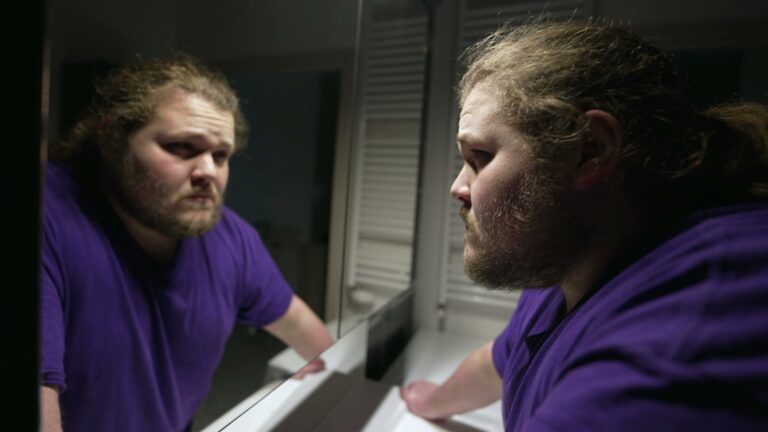The mosaic of human experiences, with its vivid hues of joy, love, and triumph, also contains the somber shades of pain, struggle, and uncertainty. At the heart of this intricate design lies mental health, an aspect of our lives as critical as physical well-being. Yet, a shadow often looms over discussions around mental health—a stigma that has persisted for too long. We challenge this stigma today, urging a collective shift towards understanding, empathy, and action.
Origins of the Stigma
The origins of the stigma surrounding mental illness can be traced back to antiquity. Ancient civilizations often associated mental disorders with supernatural forces, deeming those affected as cursed or possessed. Over time, as societies evolved, so did the understanding of mental health. Yet, remnants of these ancient beliefs persist, often manifesting as misconceptions, fear, and discrimination.
Impacts of Stigmatization
Stigmatization, an entrenched social issue, casts a long shadow over the realm of mental health. Its implications ripple through individuals’ lives, influencing self-perception, interpersonal relationships, and societal dynamics. As we delve deeper into the impacts of this stigmatization, it becomes evident that its reach is both profound and multifaceted.
Barrier to Seeking Help: Society, in many ways, places a premium on resilience and self-reliance. When combined with the prevailing stigma surrounding mental health, this creates a potent barrier for those in genuine need of support. The looming dread of societal judgment, often more daunting than the mental challenge itself, becomes a deterrent. Individuals may internalize this stigma, perceiving their struggles as signs of weakness or failure. This internal conflict — the need for help juxtaposed against the fear of labels and perceptions — can result in delays in seeking assistance. Over time, untreated or unaddressed mental health concerns can escalate, culminating in severe distress or even crises.
Social Isolation: Human connections form the bedrock of emotional well-being. Yet, the stigma surrounding mental illness can inadvertently lead to a breakdown of these very connections. Those facing mental health challenges may experience subtle (or overt) ostracization. It could manifest in various forms — friends distancing themselves, colleagues becoming hesitant in interactions, or even families tiptoeing around the topic. This isolation isn’t merely physical; it’s emotional. The individual, already grappling with internal turmoil, now confronts an external world that seems alienating. This compounded isolation can spiral into deepened feelings of loneliness, despair, and, in some cases, lead to further deterioration of mental well-being.
Misinformation and Myths: History is rife with instances where the misunderstood is feared. Mental health, unfortunately, isn’t exempt from this. Stigma, often stemming from ignorance, gives birth to a plethora of myths. These misconceptions paint a skewed picture of mental disorders, leading to generalized assumptions and unfounded fears. For instance, a common myth might be that people with mental health conditions are unstable or even dangerous, furthering the divide and misunderstanding. These myths not only perpetuate the cycle of stigmatization but also impact policy-making, funding for mental health programs, and the overall societal approach to mental well-being.
Addressing the impacts of stigmatization isn’t just about dispelling myths; it’s about creating a society where understanding trumps ignorance, compassion overrides judgment, and support overshadows isolation. As we move forward, recognizing these impacts is the first step towards fostering a more inclusive, empathetic world.
Time for Change: Dismantling the Stigma
Education is Empowerment: Ignorance is often the bedrock of prejudice. By fostering education around mental health, we can dispel myths, promoting a more informed and empathetic community.
Personal Narratives: Stories have the power to bridge divides. Encouraging those with lived experiences to share their journeys can humanize the discussion, making it more relatable.
Promote Mental Health as Integral Health: Mental well-being should be viewed with the same significance as physical health. Integrative approaches to wellness can emphasize the interconnectedness of mind, body, and spirit.
The Role of Community
Change, especially one as profound as altering societal perceptions, requires collective effort. Communities play a pivotal role in this transformation. Schools, workplaces, and social institutions can become beacons of awareness, inclusivity, and support.
At Annapolis Counseling Center, we envision a world of embracing mental health discussions with openness, understanding, and compassion. We challenge the age-old stigmas, advocating for a society where everyone feels seen, heard, and valued regardless of mental health status. If you or someone you know grapples with the double challenge of a mental health condition and societal judgment, know that there’s hope. Together, we can rewrite the narrative. Join us in this transformative journey. Let’s collaborate, learn, heal, and, most importantly, change the conversation around mental health.
Sources
- Breaking the Barriers: Mental Health Myths Debunked – MindScape Digest.
- Society and Stigma: A Historical Overview – Psychology Progress Journal.
- From Shadows to Spotlight: Mental Health in Modern Times – Wellness Chronicles.


















































